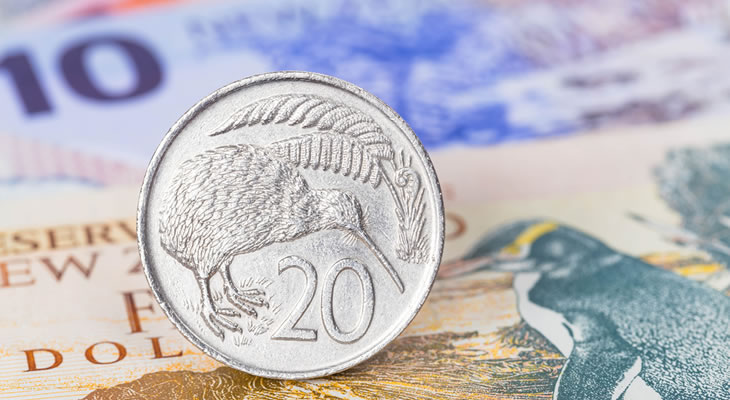Pound to New Zealand Dollar Exchange Rate Advances Despite ‘No Deal’ Brexit Fears
Broad weakness in the New Zealand Dollar (NZD) has prevented the Pound Sterling to New Zealand Dollar (GBP/NZD) exchange rate from tumbling. In fact, it was one of the few major Pound (GBP) exchange rates to actually register gains last week.
Sterling saw notable losses against most major rivals last week amid ‘no deal’ Brexit fears, but GBP/NZD recovered notably from its brief dip to a monthly low of 1.9073.
In the end, GBP/NZD climbed from last week’s opening levels of 1.9285 to around 1.9405. This week so far, GBP/NZD has been trending with a downside bias but remains close to the week’s opening levels.
Investors have been hesitant to keep buying the Pound versus the New Zealand Dollar due to concerns that Britain could be headed for a ‘no deal’ Brexit. It is ultimately putting a cap on the Pound’s potential for gains against rivals.
Still, the New Zealand Dollar has been unable to recover either due to many factors making investors hesitant to buy riskier trade-correlated currencies.
Pound (GBP) Exchange Rates Fail to Capitalise on Risk-Aversion amid ‘No Deal’ Brexit Jitters
While the Pound to New Zealand Dollar (GBP/NZD) exchange rate climbed last week, it has been unable to continue rallying due to broad weakness in Sterling (GBP).
The Pound spent most of last week falling against most major rivals due to concerns that a ‘no deal’ Brexit may be becoming more likely.
UK Trade Secretary Liam Fox said the chances of a ‘no deal’ Brexit had risen to about 60-40, and this dominated Pound movement for most of last week.
Friday’s UK Gross Domestic Product (GDP) results did little to change this, as the June growth figure fell short of expectations and indicated that Brexit uncertainties were having a negative impact on UK economic activity.
Amid a lack of fresh drivers, concerns about how the Brexit process could impact Britain’s economic outlook continued to keep pressure on Sterling on Monday.
New Zealand Dollar (NZD) Exchange Rates Unappealing as Investors Avoid Risks
As a currency that is heavily correlated to trade and commodities, the New Zealand Dollar is perceived as being a riskier buy than other major currencies like the Pound.
As a result, the currency has been highly unappealing amid last week’s rise in trade tensions between the US and China, as well as the emerging currency crisis in Turkey.
Due to Turkey’s surging inflation and worsening diplomatic tensions with the US, investors have been selling the Turkish Lira (TRY) en masse, and ‘safe haven’ currencies like the US Dollar (USD) have been more appealing instead.
With investors seeking safe havens, riskier currencies like the New Zealand Dollar have been sold.
On top of this, last week’s Reserve Bank of New Zealand (RBNZ) policy decision was surprisingly dovish to NZD investors, causing further weakness in the currency.
The bank indicated that due to perceived downside risks in New Zealand growth, it would rather leave interest rates lower for longer. This caused RBNZ interest rate hike bets to fall and the New Zealand Dollar to weaken.
Pound to New Zealand Dollar (GBP/NZD) Forecast: UK Data and Political Developments in Focus
New Zealand’s economic calendar will be a little quieter this week, so the Pound to New Zealand Dollar (GBP/NZD) exchange rate is more likely to be driven by UK data or political news in the coming sessions.
Key UK data will be published from Tuesday through Thursday. UK job market stats will come in on Tuesday, including the latest wage growth figures.
Wednesday will see the publication of Britain’s anticipated July Consumer Price Index (CPI) inflation report, which could influence Bank of England (BoE) interest rate hike bets and the Pound if they surprise.
UK inflation is forecast to have contracted slightly month-on-month, but the yearly figure is expected to have improved from 2.4% to 2.5%.
If UK inflation is lower than expected, investors may become concerned that the BoE’s August interest rate hike was unjustified. This could drag GBP/NZD lower.
Even if the inflation data impresses, the Pound’s potential for gains is limited as ‘no deal’ Brexit jitters persist.
However, if investors become even more hesitant to buy riskier currencies due to global trade nerves or developments in Turkey, the Pound to New Zealand Dollar (GBP/NZD) exchange rate could rise.


Comments are closed.